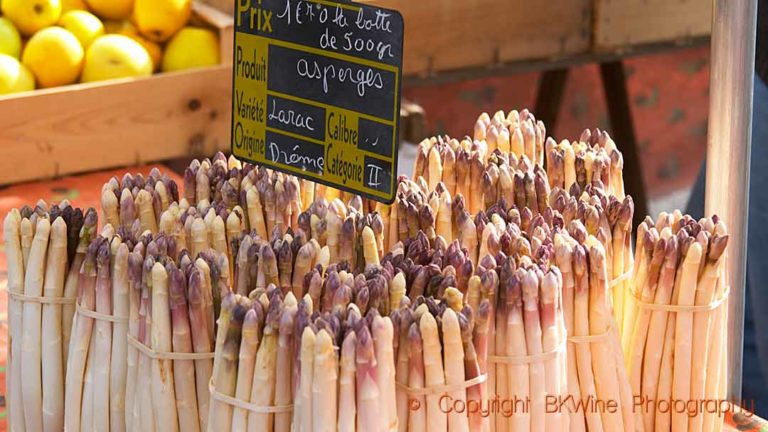When in Rome do as the Romans. Certainly this is a good piece of advice. One should not, for instance, complain about the French breakfast when in France. (Actually the French breakfast is today much better than what it used to be.) Or ask for bread for breakfast in China, as an Italian colleague once did. He did not seem able to survive without bread for breakfast, even though there were probably about 102 other dishes to choose from.
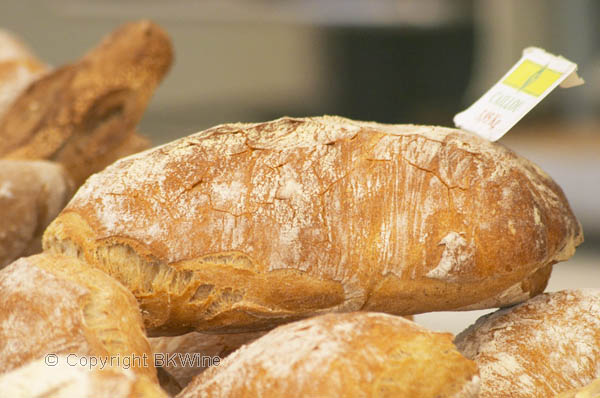
Why do people travel if they cannot adapt to local customs?
And besides, they don’t even have good bread in Italy.
What I mean by this is that you should always eat and drink the local products wherever you are. In as far as it is possible of course. In France there is much to choose from locally. Not least there are a lot of fine vegetables, especially at this time of the year.
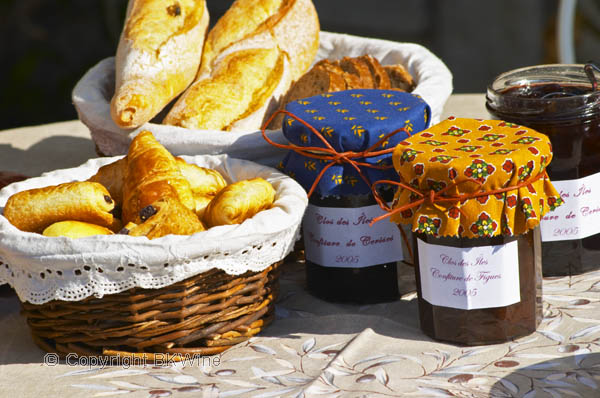
All year round, the French actually eat a lot of salads for lunch: salade au chèvre chaud (warm goat cheese) salade océanique (with seafood), salade du Périgord (with gésier, that’s duck’s gizzard, which is much tastier than it sounds, and dried duck breast) and several other traditional salads feature permanently on the bistro menus in Paris.
In France, salads are serious stuff. And that is why my best kitchen gadget, besides the corkscrew course, is the salad spinner. I can hardly imagine life without a salad spinner.
Here in France the dressing is the alpha and omega of a salad. Often it is a vinaigrette, styled up with a bit of garlic.
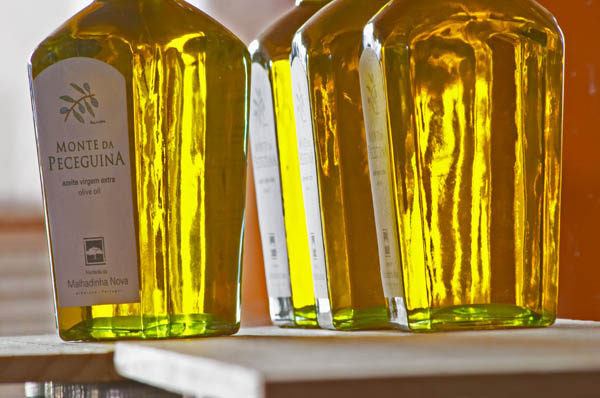
I still remember one of my first experiences of this, one of the French gastronomy’s most rigid rules.
I was invited to a summer lunch with a bunch of French people in the countryside somewhere outside of Paris. Everyone had to help with the lunch. My lot was to mix the vinaigrette. We were maybe 15 or so people, and of course the bowl for the salad was large. I made the dressing according to what I thought were all the rules. Poured it over the salad and stirred it as it should be. (I have once seen a waiter mix the dressing into the salad at the table. He actually stirred it for 10 minutes. Obviously, salad stirring is serious business!)
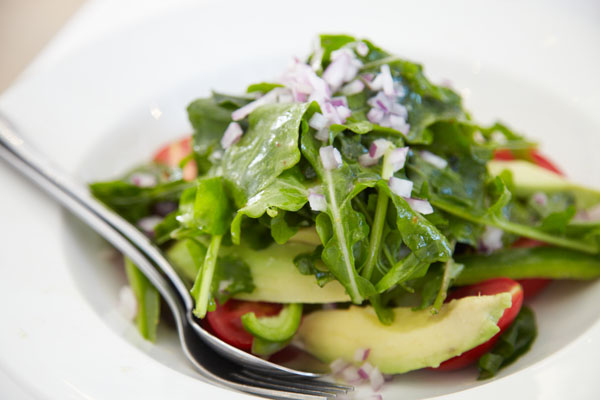
Anyway, proudly I put my salad bowl on the table and everyone helped themselves to the various foods. I do not remember much of this lunch any-more, except that one of the guests tasted the salad and said “there’s no dressing on the salad, it is inedible!” I had taken too little dressing. French people cannot possibly eat salad if it is not literally soaked in vinaigrette.
I disappeared under the table but came up again after lunch, one experience richer.
Soon afterwards I invested in a salad spinner. Because without one, you cannot dry the lettuce. And if the salad leaves are wet, the dressing will not stick. And then the salad is, if possible, even more inedible for a Frenchman.
Now, if you have made a really good salad, can you really serve a wine to go with it?

People often say that raw vegetables are among the wine’s worst enemies. There is no problem with serving wine with salad as long as you make the salad as the French do, that is mixing the salad with the dressing in advance.
Do not let the guests help themselves to the dressing! Mixing on the plate is really difficult.
Choose a white, aromatic wine. An Alsatian riesling, an Italian pinot grigio, a sauvignon blanc. A fresh acidity is great with raw vegetables, “soaked” in good olive oil and a few drops of balsamico.
[box type=”info” style=”rounded” border=”full”]”Enjoy local food” is of course a main theme on the wine tours that BKWine organises. Local wines often go best with local food. Join us on a BKWine wine tour and you will enjoy many delicious meals and wines. Wine tours with the wine experts.[/box]



